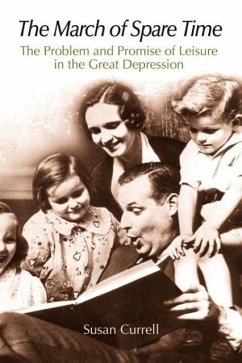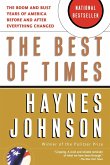The March of Spare Time The Problem and Promise of Leisure in the Great Depression Susan Currell "A groundbreaking book."--Studies in American Culture "Clearly written and tightly argued. . . . The March of Spare Time provides an in-depth analysis of why the leisure question was 'such an intense object of interest, concern, and surveillance by national policy makers, experts, and intellectuals alike in the 1930s.'"--Journal of American History "Susan Currell has written a worthy book that focuses our attention on Depression-era debates among New Deal policy makers over what she identifies as 'the problem of leisure.'"--David Nasaw, American Historical Review In The March of Spare Time, Susan Currell explores how and why leisure became an object of such intense interest, concern, and surveillance during the Great Depression. As Americans experienced record high levels of unemployment, leisure was thought by reformers, policy makers, social scientists, physicians, labor unions, and even artists to be both a cause of and a solution to society's most entrenched ills. Of all the problems that faced America in the 1930s, only leisure seemed to offer a panacea for the rest. The problem centered on divided opinions over what constituted proper versus improper use of leisure time. On the one hand, sociologists and reformers excoriated as improper such leisure activities as gambling, loafing, and drinking. On the other, the Works Progress Administration and the newly professionalized recreation experts promoted proper leisure activities such as reading, sports, and arts and crafts. Such attention gave rise to new ideas about how Americans should spend their free time to better themselves and their nation. These ideas were propagated in social science publications and proliferated into the wider cultural sphere. Films, fiction, and radio also engaged with new ideas about leisure, more extensively than has previously been recognized. In examining this wide spectrum of opinion, Currell offers the first full-scale account of the fears and hopes surrounding leisure in the 1930s, one that will be an important addition to the cultural history of the period. Susan Currell is Senior Lecturer in American Literature at the University of Sussex. 2005 248 pages 6 x 9 26 illus. ISBN 978-0-8122-3859-4 Cloth $45.00s £29.50 ISBN 978-0-8122-2125-1 Paper $22.50s £15.00 World Rights American History, Public Policy Short copy: Explores how and why leisure became an object of such intense interest, concern, and surveillance during the Great Depression.
Hinweis: Dieser Artikel kann nur an eine deutsche Lieferadresse ausgeliefert werden.
Hinweis: Dieser Artikel kann nur an eine deutsche Lieferadresse ausgeliefert werden.








